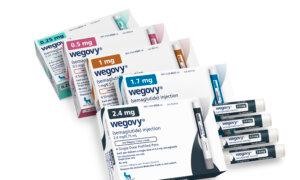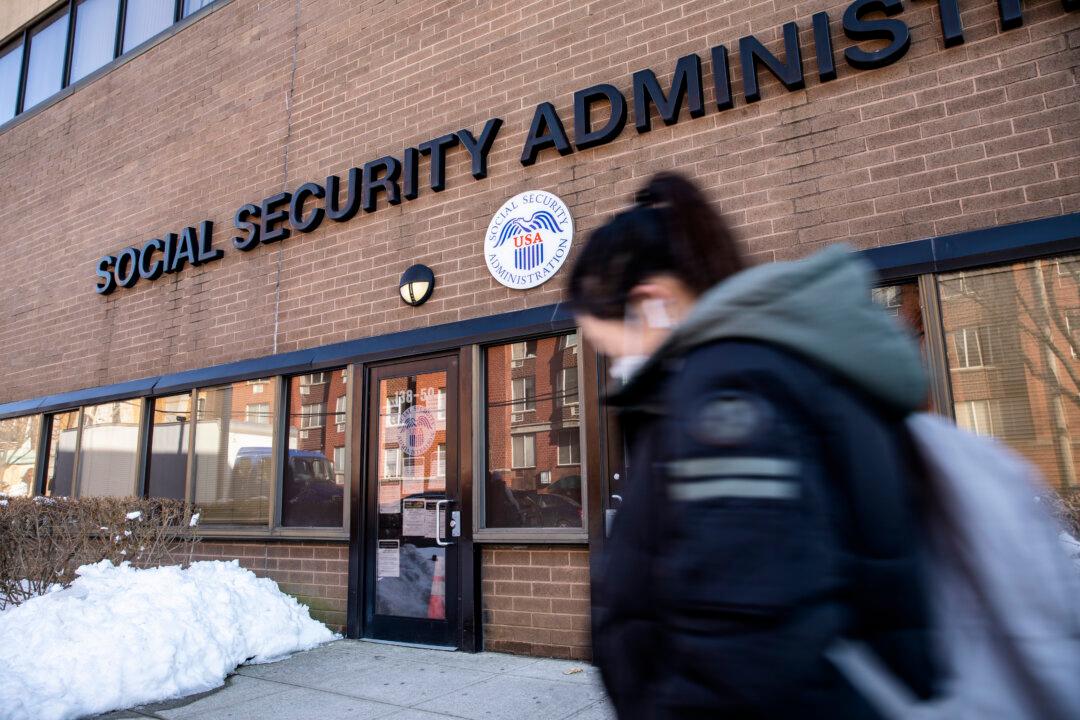Popular weight loss and diabetes drugs Ozempic and Wegovy may result in an increased risk of aspiration pneumonia among people undergoing certain medical procedures, according to a recent study.
Aspiration pneumonia is caused when an individual inhales foreign material, such as food, into their lungs. The foreign material carries microbes that could cause an infection, potentially leading to pneumonia.
An endoscopy is a medical procedure in which a tube-like scope is put down a patient’s throat so that a physician can look inside.
The research suggested that people scheduled to undergo the procedure who take GLP-1RA drugs may be better off if they cease taking the medication in the days or weeks prior to the appointment to avoid any potential complications.
In the study, researchers analyzed data from about 1 million Americans who underwent endoscopy procedures between January 2018 and December 2020. They found that individuals who were prescribed GLP-1RA medications had a 33 percent higher chance of experiencing aspiration pneumonia compared to those who did not take the drugs, Cedars-Sinai reported.
“When we apply this risk to the more than 20 million endoscopies that are performed in the U.S. each year, there may actually be a large number of cases where aspiration could be avoided if the patient safely stops their GLP-1RA medication in advance,” said study co-author Ali Rezaie, director of bioinformatics at the MAST Program at Cedars-Sinai Medical Center.
“Aspiration during or after endoscopy can be devastating,” he said. “If significant, it can lead to respiratory failure, ICU admission, and even death. Even mild cases may require close monitoring, respiratory support and medications including antibiotics. It is important we take all possible precautions to prevent aspiration from occurring.”
One way the GLP-1RA medications work is by slowing down digestion to make people feel fuller, which causes them to eat less and thus likely lose weight. However, this also means that food remains in the stomach for a longer period of time.
As such, the stomach may not empty itself fully during the fasting duration prior to a surgical procedure, Mr. Rezaie said. And when the person is under anesthesia, the food or liquid in their stomach could move up the esophagus and enter the lungs.
Co-author Yee Hui Yeo pointed out that the research results could change clinical practice.
“Patients taking these medications who are scheduled to undergo a procedure should communicate with their healthcare team well in advance to avoid unnecessary and unwanted complications,” he recommended.
Aspiration Risks
The issue of GLP-1RA drugs causing aspiration has been a topic of discussion for some time.In June last year, the American Society of Anesthesiologists (ASA) said that these medications “can increase the risk of regurgitation and pulmonary aspiration of gastric contents during general anesthesia and deep sedation.”
Given these concerns, the ASA’s Task Force on Preoperative Fasting suggested that patients who take a daily dose of the drug should avoid taking it on the day of a surgical procedure. Those taking a weekly dose should avoid taking the medication a week prior to the surgery.
“For patients requiring urgent or emergent procedures, proceed and treat the patient as ‘full stomach’ and manage accordingly,” the ASA recommended.
The FDA’s Adverse Events Reporting System received fewer than 20 reports of people taking GLP-1RA drugs and experiencing aspiration.
Individuals who suffer from gastroparesis can experience dehydration from repeated vomiting, difficulty in controlling blood sugar levels, and malnutrition due to poor nutrient absorption, consequences that can be life threatening.
The lawsuits also allege other gastrointestinal issues, such as intestinal obstructions and ileus, a condition in which the intestine is unable to push food and waste out of the body.
The cases were filed against three Novo Nordisk products—Ozempic, Wegovy, and Rybelsus—and two from Eli Lilly—Trulicity and Mounjaro.
In addition to gastrointestinal issues, GLP-1RA drugs may cause more serious but less common side effects, including pancreatitis, which is an inflammation of the pancreas that can result in abdominal pain. The drugs can block the bile duct and obstruct the bowel as well.
Those who take GLP-1RA drugs may have to seek medical care in case they suffer from severe vomiting and diarrhea, jaundice, or severe pain in their stomach.






